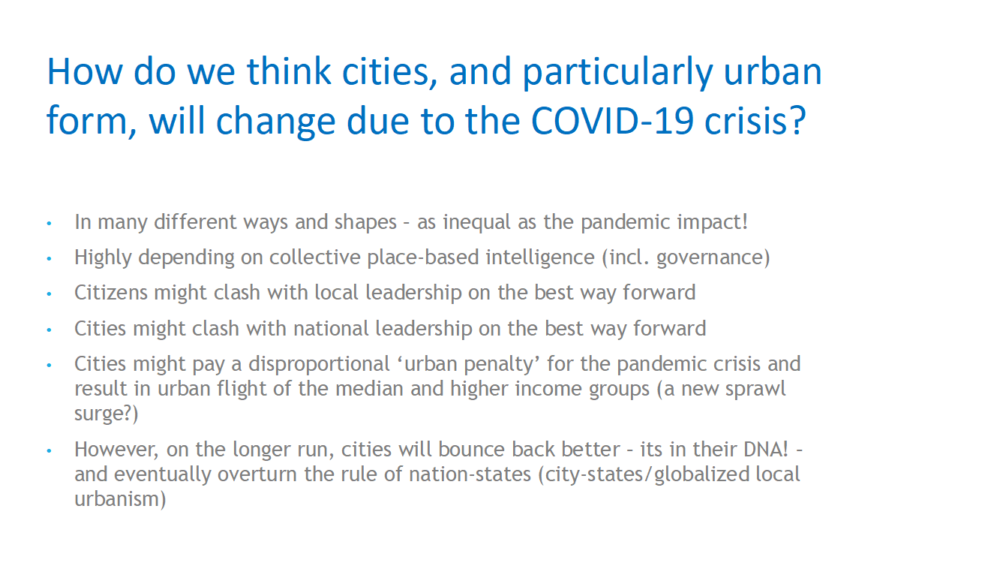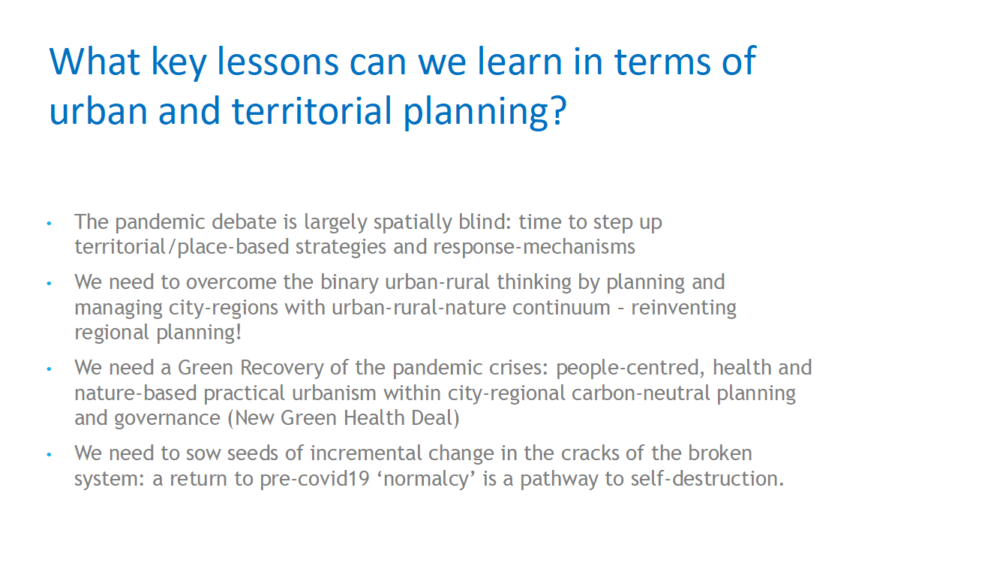On 9 June, ISOCARP Secretary General Frank D’hondt was invited to contribute to a closed but well-attended OECD policy brainstorm on post-Covid-19 planning. The session was moderated by Lamia Kamal-Chaoui, OECD Director of the Centre for Entrepreneurship, SMEs, Regions & Cities (CFE), with the following overarching questions:
- What are the top three changes that the COVID-19 crisis has brought to cities?
- What innovative solutions can cities and national governments leverage to drive the transition towards more inclusive, resilient and sustainable economies and societies?
- What do you think the role of the OECD, and the CFE in particular, should be to help cities in this effort?
The questions were answered by a panel of four experts, including Patrick Le Galès, Dean of the Urban School of the Paris Institute of Political Science (Sciences Po), Andrés Rodriguez-Pose, Professor of Economic Geography, London School of Economics (LSE), Florence Gaub, Deputy Director of the EU Institute for Security Studies, and Frank D’hondt, ISOCARP Secretary General, followed by a group discussion with the OECD CFE team and a wrap-up by Joaquim Oliveira Martins, OECD CFE Deputy Director. Frank pleaded for the development of new tools for territorial impact assessment of COVID-19 responses at national, local and, especially, at urban-regional level as the main planning scale to overcome the binary urban-rural thinking. He also advocated new tools for remote/virtual public participation in city and regional planning to complement traditional means, as summarised below.


The Secretary General of ISOCARP also attended the OECD webinar to launch its flagship publication Cities in the World: A New Perspective on Urbanisation. Angel Gurria, the OECD Secretary General, explained that the new publication offers new insights into urbanisation by applying for the first time two new definitions of human settlements to the entire globe: the Degree of Urbanisation and the Functional Urban Area. Based on these definitions, the report presents new insights into recent and future urbanisation trends and sheds light on the development of metropolitan regions around the globe. It examines whether and why the quality of life differs between cities and other types of settlement. It analyses the relationship between economic development and the metropolitan system in countries around the world. Finally, new insights into the changing shape of cities and their impact on sustainability are presented. The report shows how globally consistent definitions of cities and metropolitan areas can contribute to more effective policy making. In other words, it is essential reading for all urban and territorial planners and stakeholders. The launch event was co-hosted by EU Commissioner Elisa Ferreira (DG REGIO), a former Portuguese Minister for Urban Planning and Environment, who said that “one size (of pandemic response) cannot fit all” (different areas from rural villages to small and large cities), and called for more territorial intelligence and cooperation. Don’t miss the teaser video below!